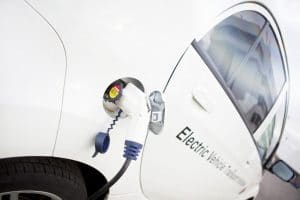Frost & Sullivan estimates sales of approximately 1.4 million electric vehicles (EVs) in India by 2030, accounting for about 18% of the new vehicles market. While EVs are expected to account for about 15%, full hybrid electric vehicles will have about 3%.

Frost & Sullivan’s “Electric and Hybrid Vehicles Market in India”, finds that the two-wheeler segment will constitute nearly 60% of the electric vehicle market with a healthy growth of nearly 38% by 2020. It provides a strategic overview of the global as well as Indian electric and hybrid market, including drivers and restraints, future market, government regulations, technology trends and challenges, and charging infrastructure.
“The low speed of technology adoption can be attributed to limited cooperation between OEMs and suppliers. Increased cooperation in the future should improve economies of scale and accelerate the use of technology,” said Aswin Kumar, Program Manager, Mobility (Automotive & Transportation) Practice, Frost & Sullivan.
For long-term growth of electric and hybrid vehicles in India, players should:
-
focus on affordable electric/hybrid technologies;
-
keep a close watch on government plans;
-
reduce the price gap between conventional vehicles and full hybrids;
-
create better awareness of hybrid/electric technologies to alleviate fears relating to safety and cost of ownership; and
-
integrate technologies such as high-efficiency motors and low-cost battery packs with the help of suppliers by jointly investing in research and development for industry consolidation and economies of scale
“We expect a lot of permit driven business like auto rickshaws and unorganized ones like rickshaw market to lead electrification in terms of last mile connectivity,” noted Kumar. “Sales in electric rickshaws in recent years have been a major double-digit growth contributor in this segment.”




























